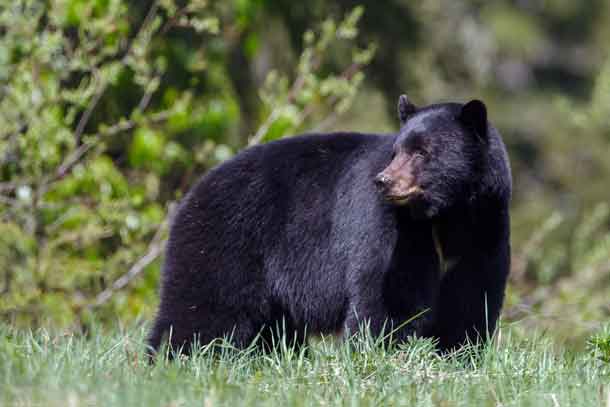Thunder Bay – Travel – For many outfitters across the region the pandemic and closed border has hammered their businesses.
Now with the Canada–United States (U.S.) border restrictions being reduced and travel to Canada resumed from the United States land border crossings, the Canada Border Services Agency (CBSA) is reminding those wishing to enter Canada for hunting season that travellers must declare all of their firearms and cannot import prohibited firearms, prohibited devices or prohibited weapons.
Canadian firearms laws changed in 2020. More than 1,500 models and variants of assault-style firearms have been classified as prohibited since foreign nationals, including U.S. residents, were last able to visit Canada to hunt.
The CBSA states, “Canadian firearm laws are clear – you must declare any firearm to the CBSA. To help facilitate a smooth border crossing, please have all necessary documents at hand and ensure your firearm(s) is stored and transported appropriately.
“Failing to declare firearms can result in significant border delays, monetary penalties, criminal charges, loss of the undeclared guns and the risk of visitors being banned from returning to Canada.”
Hunters entering for bear hunting should be aware that any bear bait imported for personal use that contains raw animal products or by-products (meat, fish, eggs, or milk products) will be refused entry.
The border crossing process has also changed, and we encourage travellers to inform themselves and fully understand their obligations by ensuring their eligibility to enter Canada and reviewing the COVID-19 vaccinated travellers entering Canada Web page.
Fully vaccinated U.S. citizens and permanent residents are now eligible to enter Canada for discretionary (non-essential) reasons, such as hunting, however these individuals must:
- be fully vaccinated: to be considered fully vaccinated, a traveller must have received the full series of a vaccine — or combination of vaccines — accepted by the Government of Canada at least 14 days prior to entering Canada. Currently, those vaccines are manufactured by Pfizer-BioNTech, Moderna, AstraZeneca/COVISHIELD and Janssen (Johnson & Johnson).
- be residing in and travelling from the U.S.;
- have a valid negative pre-arrival COVID-19 molecular test result taken no more than 72 hours before arriving in Canada or a previous positive test result taken between 14 and 180 days before departure to Canada (antigen tests, often called rapid tests, are not accepted);
- be asymptomatic;
- submit their mandatory information via ArriveCAN, including proof of vaccination in English or French;
- be admissible under the Immigration and Refugee Protection Act; and,
- take a test on arrival, if required.
Unvaccinated U.S. citizens or permanent residents remain ineligible to come to Canada for discretionary purposes. Anyone failing to comply with all these requirements will be denied entry and not be admitted to Canada.
Travellers to Canada may experience delays and wait times at the border due to the enhanced public health measures.
Associated links
- Import and export a firearm or weapon into Canada
- Find out if you can enter Canada
- Customs Notice 20-17: Re-classification of “assault style” firearms to prohibited firearms
- Memorandum D19-13-2: Importing and exporting firearms, weapons and devices
- Firearms Reference Table
- Regulations Prescribing Certain Firearms and Other Weapons, Components and Parts of Weapons, Accessories, Cartridge Magazines, Ammunition and Projectiles as Prohibited or Restricted








